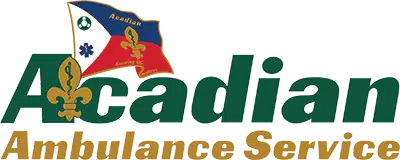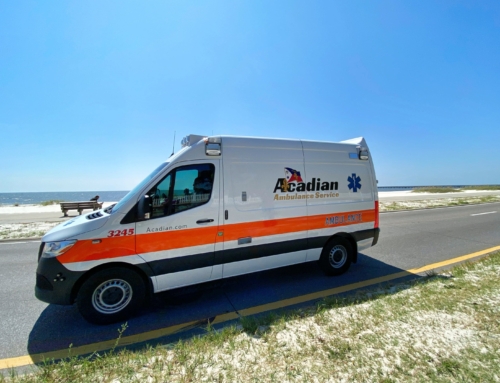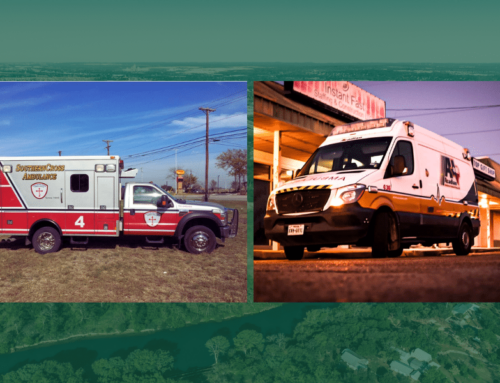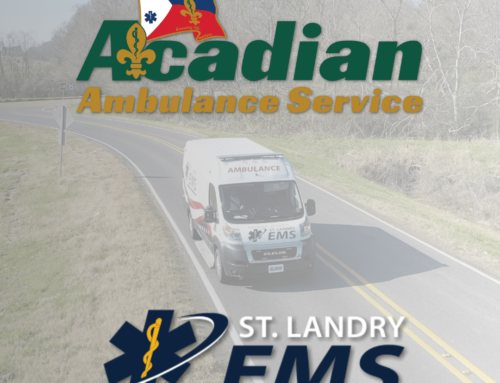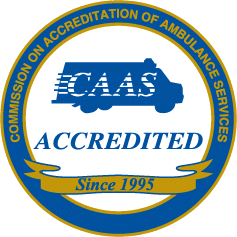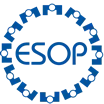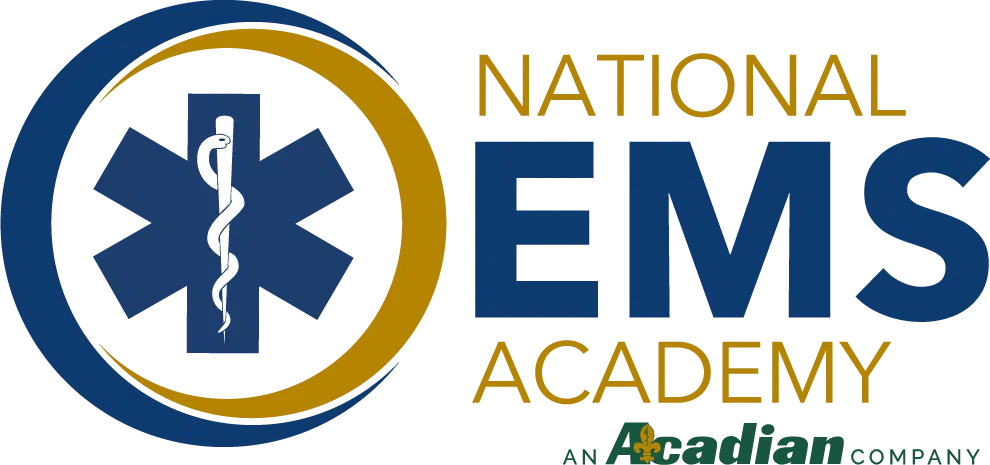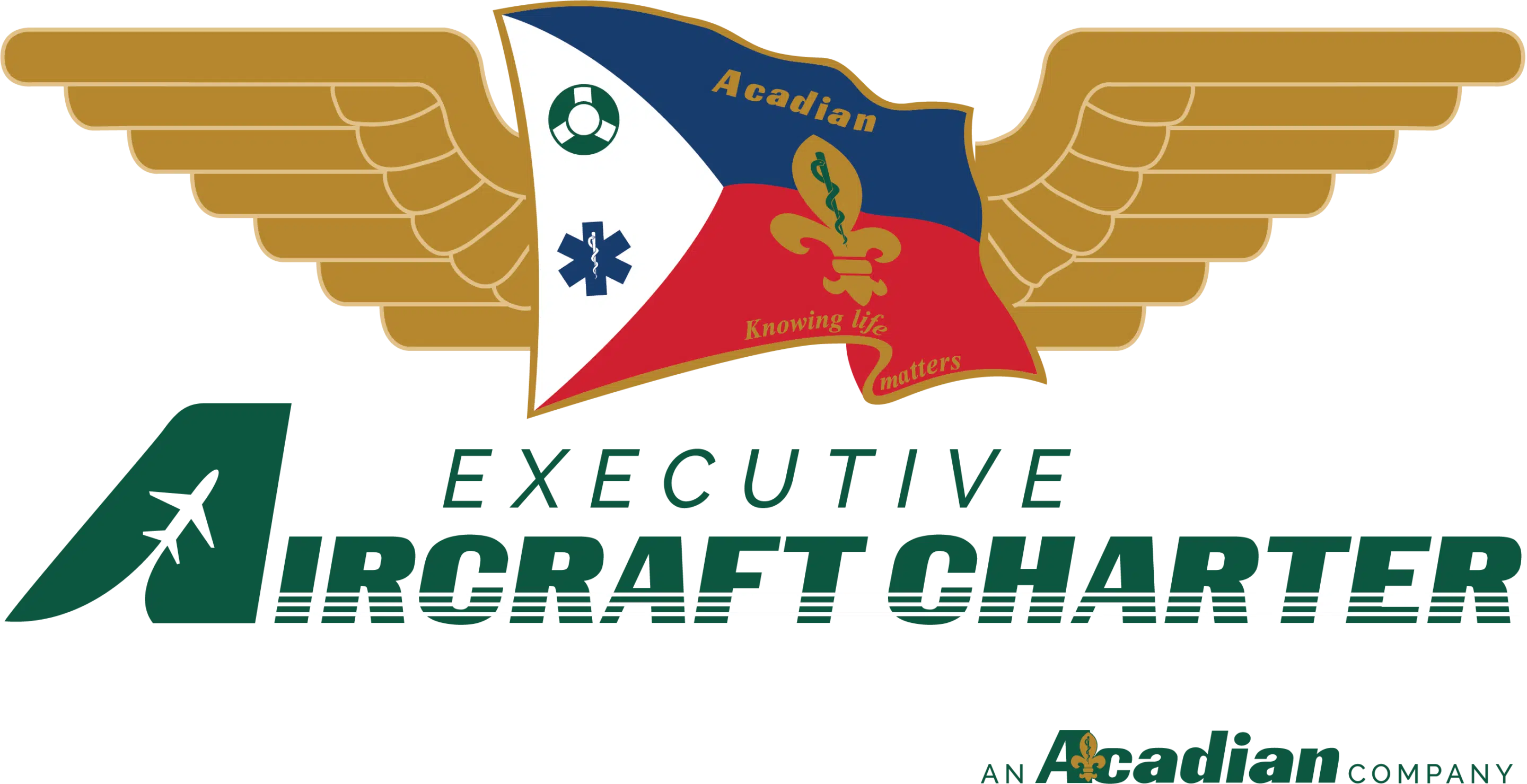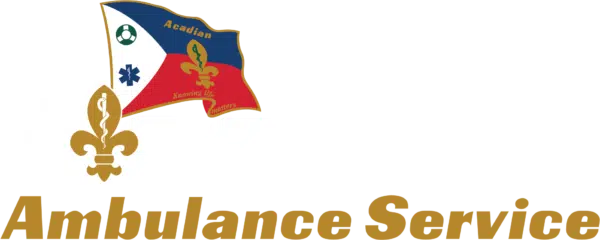Press release courtesy of Tulane Health System:
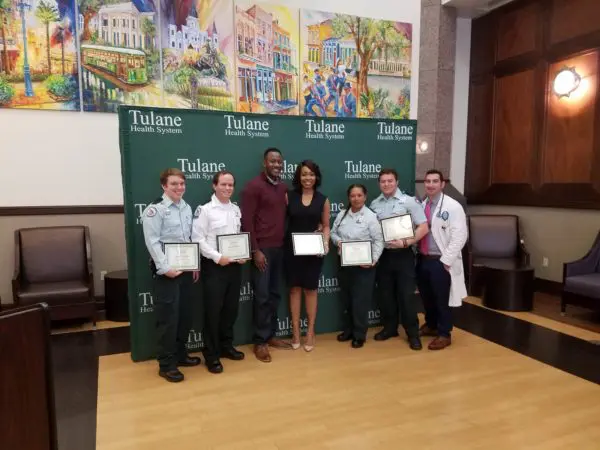
Tulane Medical Center recently hosted a “Great Save” event, highlighting Brianna’s story and reuniting her with the Acadian Ambulance emergency medical technicians and Tulane Medical Center physicians and staff who saved her life. Here is how her story unfolded:
“I drank some water and it started gushing down the side of my mouth. My husband turned to me and said, ‘What’s wrong with you? Something is really wrong with you!’ But I thought I was fine,” Brianna said.
“I knew something was wrong with her, even though she didn’t think so,” Peter said. He frantically tried to flag down help, which was difficult in the loud arena. Finally, a nurse sitting behind them came to the rescue, offering reassurance and medical aid. “She hopped down five rows, looked at me and asked me my name and my wife’s name. She told me, ‘Your wife is having a stroke, and she’s going to be okay.’” Her calm and reassurance put Peter at ease, he said.
At that point security arrived, the Pelicans’ team doctor rushed to help, and Brianna was quickly moved to the courtside team tunnel. Acadian Ambulance team members Reed Miller, Adam Nosacka, Pala LaFrance and Justin Calderon arrived and whirled into action. They assessed her symptoms and immediately used the Stroke VAN protocol to determine that she was having stroke.
The Stroke VAN protocol is a way to tell if someone has a blockage in one of the major arteries in the brain by assessing the person’s vision, aphasia (language skills) and neglect (looking in one direction and ignoring the other direction).
“Brianna’s symptoms were a textbook example of a stroke with weakness on one side of the body and slurred speech,” said Acadian supervisor Reed Miller. “The only atypical part was her age, because she is so young. Thanks to her husband’s knowledge of her health history and our use of the VAN protocol, we were able to quickly diagnose Brianna with experiencing a large vessel occlusion.”
Large vessel occlusions cause loss of blood flow to significant portions of the brain and can be extremely debilitating. According to the American Heart Association, every minute in which a large vessel stroke is untreated, the average patient loses 1.9 million brain cells.
“We knew we had to get her to Tulane’s Comprehensive Stroke Center immediately,” Miller said. “We notified the ER while we were in route to give them a head start on providing Brianna with the proper treatment.”
Tulane’s stroke program was the first in New Orleans to be certified by the Joint Commission as a Comprehensive Stroke Center, representing its ability to care for the most complex stroke cases. Tulane Medical Center has also received the Get With The Guidelines®-Stroke Gold Plus Achievement Award with Target: StrokeSM Honor Roll Elite Plus from the American Heart Association for three consecutive years.
Tulane’s stroke response team was ready and waiting for Brianna in the short time it took the ambulance to reach the hospital, and treatment began immediately.
“I saw Brianna the morning after her stroke and told her how lucky she was,” said Tulane Medical Center Stroke Program Medical Director Dr. Justin Salerian. “But at this health system, we have built our own luck and improved the odds that our patients will have a good outcome. It starts with the first responders getting patients to right place, and then the emergency team, and the radiology team getting the patient diagnostics at quickly as possible, and then the stroke team being able to recognize and give the medication, and then the cath lab team extract the remaining clot.”
Thanks to the quick actions of the Acadian EMS providers and the neuroscience team at Tulane Medical Center’s Comprehensive Stroke Center, Brianna was discharged home with virtually no after effects. She’s spent the last few months enjoying the experience of motherhood.
Brianna said she remembers thinking “‘God, I know you didn’t bring me this far to have my child and take me away from her.’ When I teach my child what it means to be a hero, it’s not Superman or Batman – but the everyday heroes. It’s you, the first responders. I thank you so much for choosing to do the job that you do and doing it so well. You truly saved my life, and I’m eternally grateful for it.”
There were many hugs and tears shed at the Great Save event as each person recounted their side of the story. Only one thing was missing – the mystery nurse who started the cascade of calm and help that day. “We wish we could thank her, too” Peter said. “Her calm and reassurance set the tone and helped me keep it together.”
Tulane Medical Center is on a mission to help reunite Brianna and Peter with the mystery nurse. If you or someone you know was at that New Orleans Pelicans vs. Boston Celtics game on Nov. 26, 2018, and can help identify the mystery nurse, please email contactus@hcahealthcare.com.
For more information on the Tulane Medical Center stroke program visit TulaneHealthcare.com.
